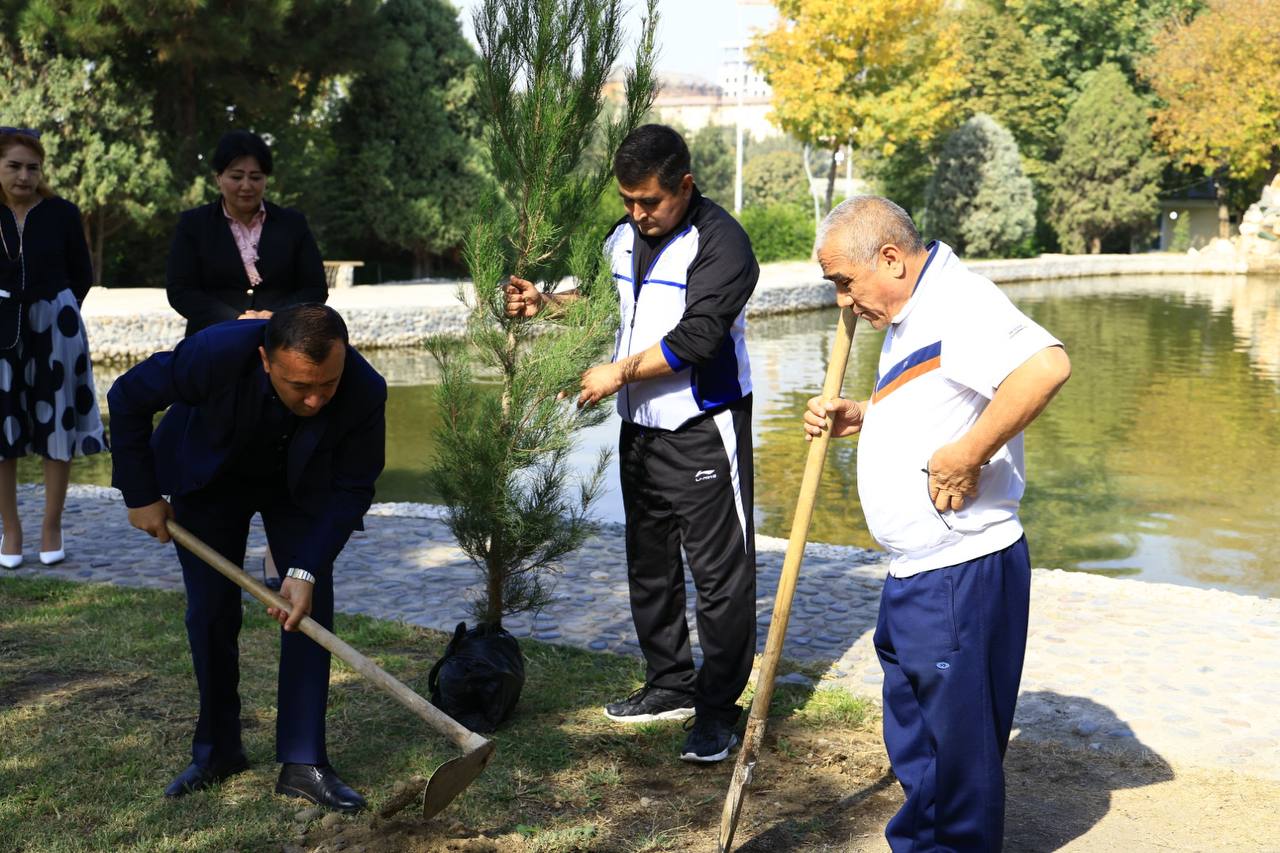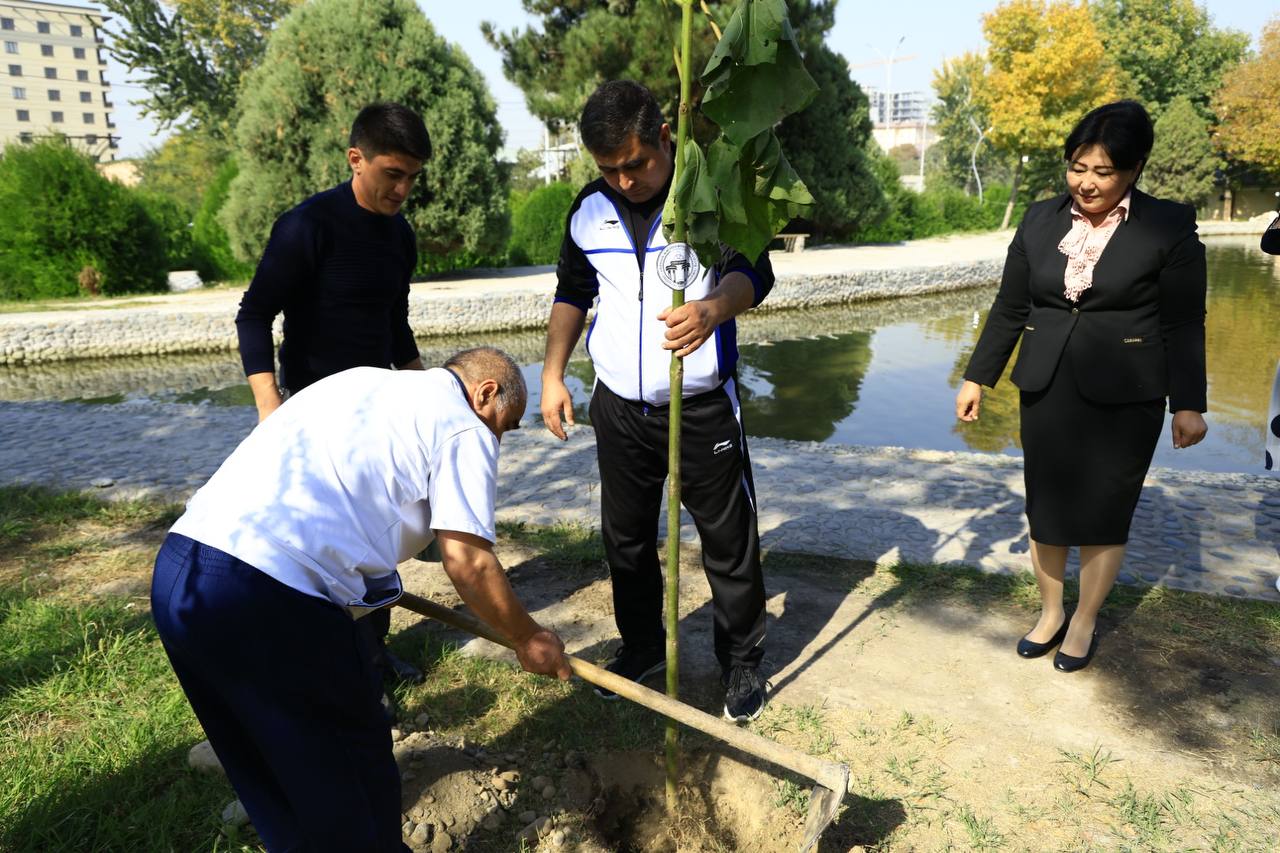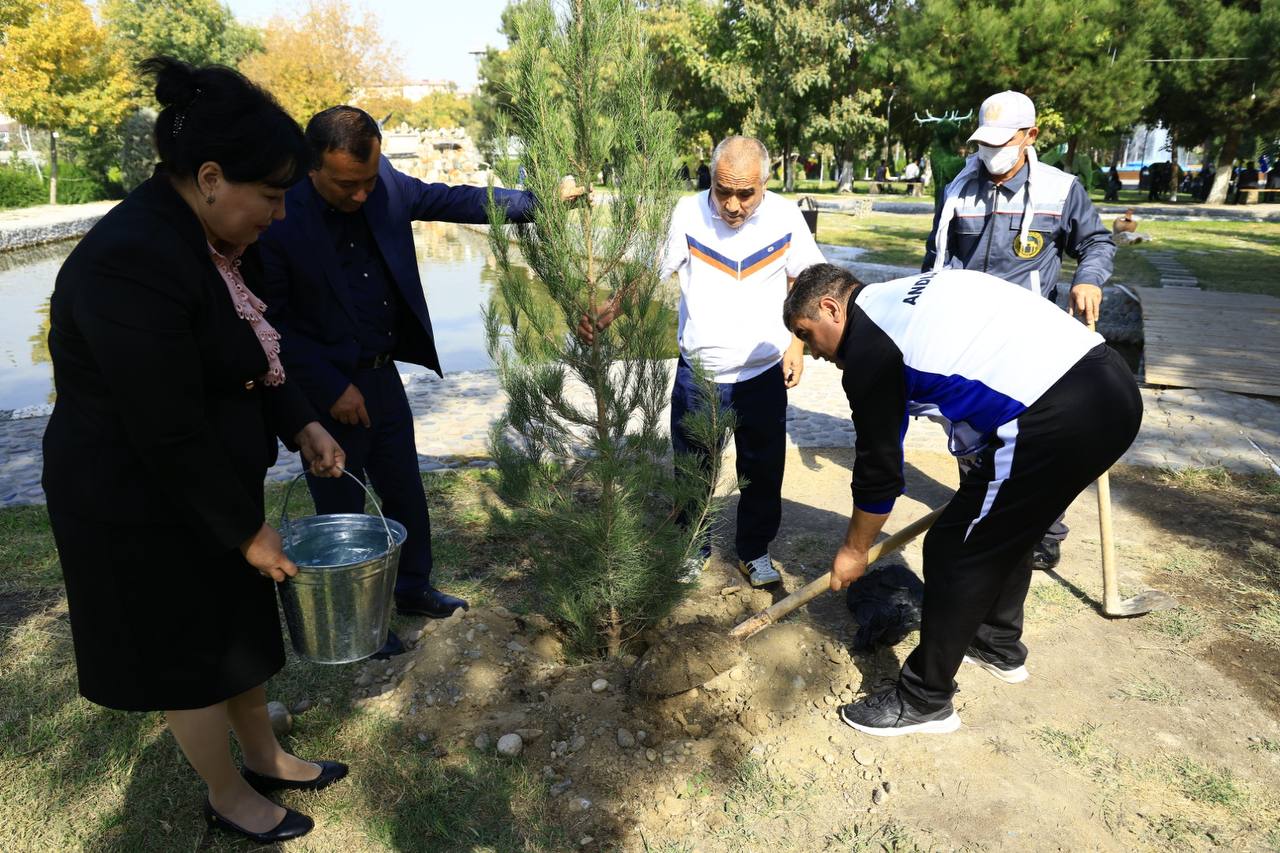Environmental Campaign
| Type of Waste | Amount (tons) | |||
|---|---|---|---|---|
| Total | Reduced | Recycled | Recycled | |
| organic | 1169 | 114 | 185 | 688 |
| food waste | 591 | 67 | 124 | 307 |
| branches, etc. | 124 | 12 | 16 | 34 |
| water waste | 398 | 31 | 37 | 318 |
| etc. | 56 | 4 | 8 | 29 |
All hazardous waste (solid/liquid/gaseous) located on the university premises is first sampled and sent to the University’s toxicology lab. After careful study, the toxic substances are sent to the Andijan city waste processing plant, where they are processed according to their type. The plant processes and prepares them for reuse, which significantly reduces waste and helps prevent environmental pollution.
Special waste bins have been installed on the premises of the Andijan Machine-Building Institute. There are bins for recycling, plastic recycling, paper recycling, and non-recyclable waste. Since glass and aluminum are not frequently used, separate bins for these are not necessary. However, electronic waste cannot be discarded with regular waste, so we are working on an electronic waste recycling initiative.







